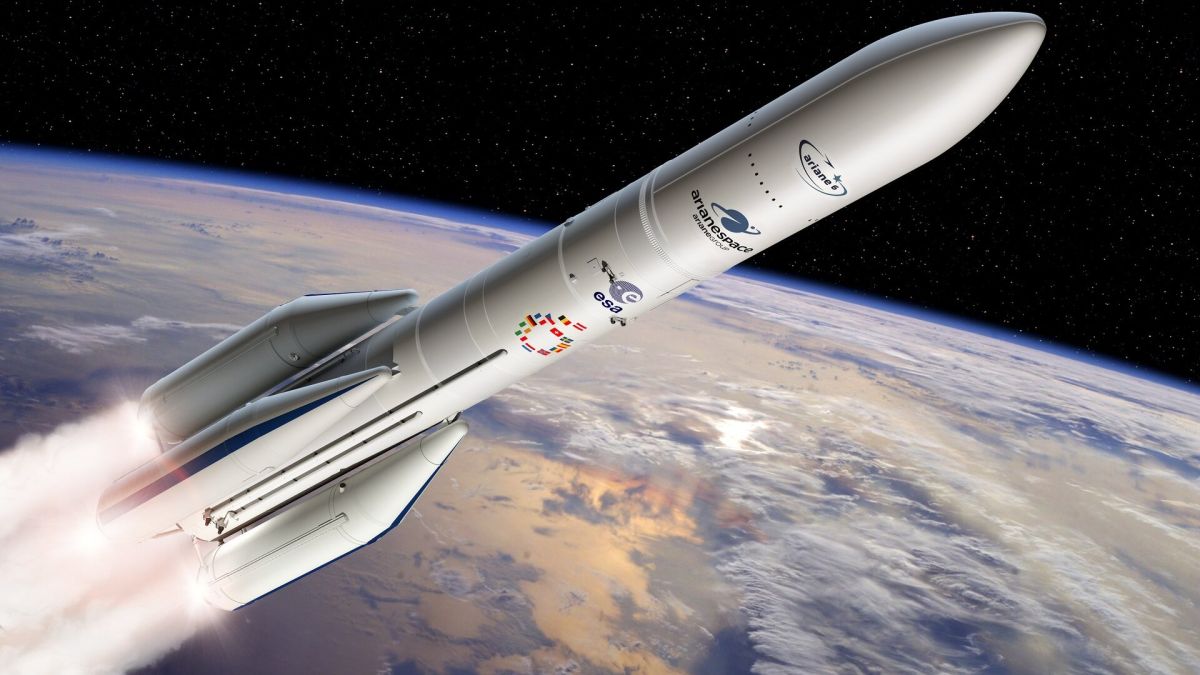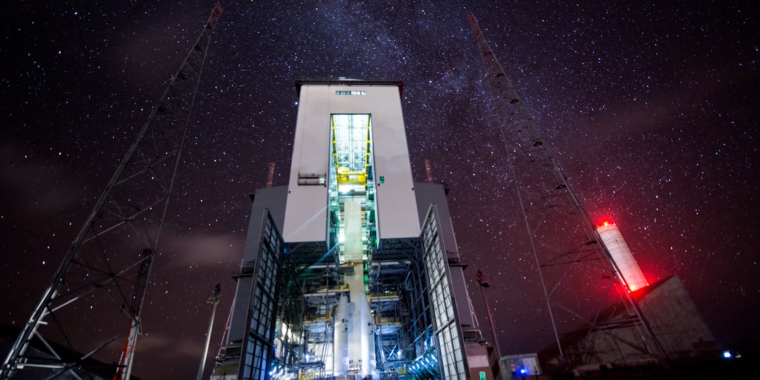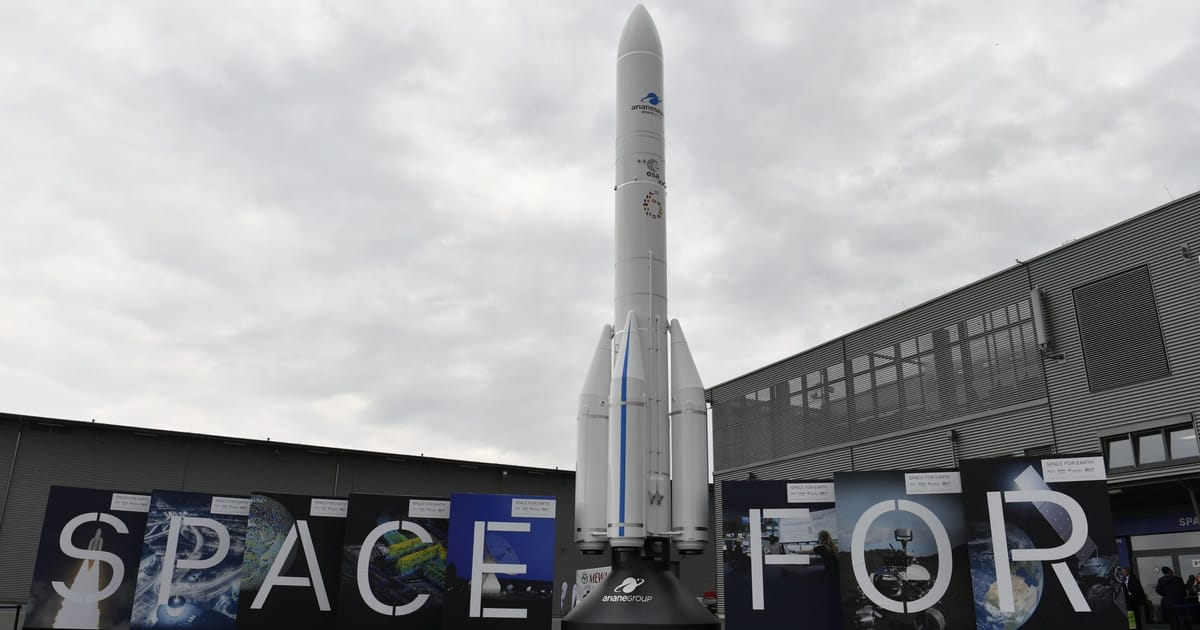1st Launch of Europe’s New Ariane 6 Rocket Slips to 2024
The highly anticipated debut launch of Europe’s Ariane 6 rocket, eagerly awaited as a viable competitor to SpaceX’s Falcon 9, has been delayed yet again. Originally slated for a late 2023 launch, the ambitious project now faces further setbacks and is not expected to take flight until 2024.
Background: Ariane 6 and the Need for Independence

The decision to develop the Ariane 6 rocket was driven by Europe’s desire to establish independent access to space, reducing reliance on international partners such as NASA and Russia. With the rapid advancements made by SpaceX’s Falcon 9 rocket, European ministers recognized the need for a cost-optimized, modernized replacement for the aging Ariane 5.
Challenges: Political & Parochial Pressures
European space policy, like its American counterpart, is highly influenced by parochial politics and funding allocations from member nations. The development and production of Ariane 6 involved collaboration between several countries under the management of France-based ArianeGroup. This complex approach, combining political pressures and traditional aerospace company dynamics, has contributed to delays and budget overruns.
Delayed Debut: A Costly Consequence
While Europe invested significant time and resources into developing the Ariane 6 rocket, its competitor, SpaceX’s Falcon 9, has continued to evolve and achieve impressive milestones. In the nine years since Ariane 6’s conception, Falcon 9 has doubled its payload capacity, become partially reusable, and successfully launched over 215 times. The delayed debut and increased costs of Ariane 6 raise questions about the viability and comparability of the two rockets.
Strategic Independence vs. Practical Realities

The underlying motivation for Europe’s pursuit of an independent rocket system is the desire for self-reliance in accessing space. Recent geopolitical events, including disruptions in access to the Russian Soyuz rocket, have highlighted the need for European nations to have their means of deploying vital military and scientific satellites without relying on other nations or private entities.
Slipping Schedules: Ariane 6 Struggles to Fulfill its Mission
Despite the ambitions and intentions behind the Ariane 6 program, the rocket’s readiness for launch has been consistently delayed. Politico reports that the European Commission is now considering alternative options, including purchasing rides on SpaceX’s Falcon 9 due to ongoing delays in Ariane 6’s readiness.
Lost Cost Advantage: Falcon 9’s Rise
One of the significant factors impacting Ariane 6’s prospects is the rapid progress made by SpaceX’s Falcon 9. The Falcon 9 has continuously improved its capabilities, reduced costs, and established itself as a reliable launch vehicle. Europe finding itself in a position where its own rocket, despite its higher costs, lags behind Falcon 9 both in terms of capabilities and track record challenges the value proposition of Ariane 6.
European Commission’s Dilemma: Seeking Alternatives
The European Commission, the executive arm of the European Union, is currently contemplating an agreement with the United States to secure services from US rocket companies. The aim is to ensure that European satellites, such as the Galileo constellation, can be launched promptly and reliably, even if it means relying on foreign providers.
Conclusion

The debut of Europe’s Ariane 6 rocket has been delayed once again, pushing the anticipated launch to 2024. While Europe’s desire for strategic independence in accessing space is understandable, the challenges faced by the Ariane 6 program, coupled with the meteoric rise of SpaceX’s Falcon 9, raise questions about the viability and cost-effectiveness of the venture.
FAQs (Frequently Asked Questions)

1. Will the delay in the Ariane 6 launch affect Europe’s satellite deployment plans?
The delay in Ariane 6’s launch could potentially impact Europe’s satellite deployment plans, causing further disruptions and uncertainties. The European Commission is actively considering alternative options, such as utilizing SpaceX’s Falcon 9, to ensure timely access to space for critical satellite missions.
2. How does the cost of Ariane 6 compare to SpaceX’s Falcon 9?
Unfortunately, the cost of Ariane 6 is significantly higher compared to SpaceX’s Falcon 9. This cost disparity, coupled with Falcon 9’s impressive track record and higher payload capacity, raises concerns about the competitiveness and financial sustainability of the Ariane 6 program.
3. What impact does the delay in Ariane 6’s launch have on Europe’s space exploration efforts?
The delay in Ariane 6’s launch presents challenges for Europe’s space exploration ambitions. Delayed access to space could hinder scientific and military missions, potentially leading to missed opportunities and reduced capabilities in a rapidly advancing field.
4. Is Europe still committed to the Ariane 6 program despite the delays?
Europe’s commitment to the Ariane 6 program remains strong. However, ongoing delays and cost increases have led to discussions and considerations of alternative options. The goal of establishing independent access to space remains central, but the practical realities and viability of Ariane 6 must be carefully assessed.
5. How might Europe’s collaboration with SpaceX impact future rocket development?
Europe’s collaboration with SpaceX, if pursued, could potentially offer valuable insights and opportunities for future rocket development. By leveraging SpaceX’s expertise and proven capabilities, Europe may be able to enhance its own rocket technologies and streamline their deployment, leading to a more competitive and robust space industry.



Add Comment